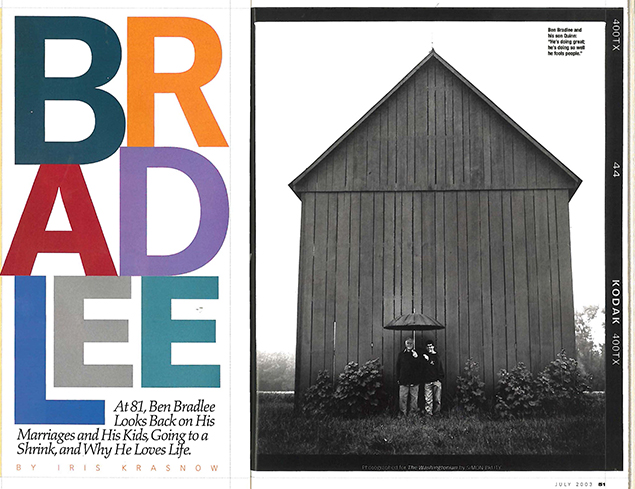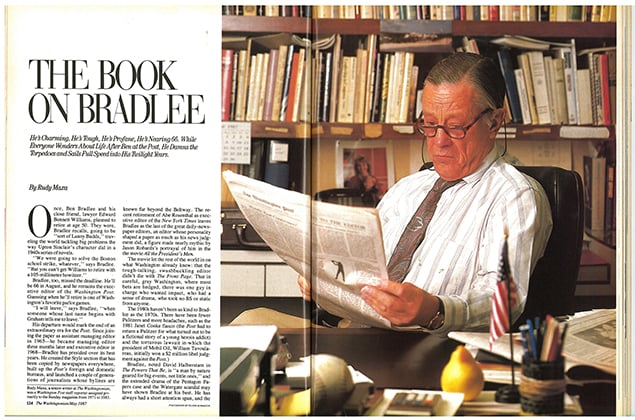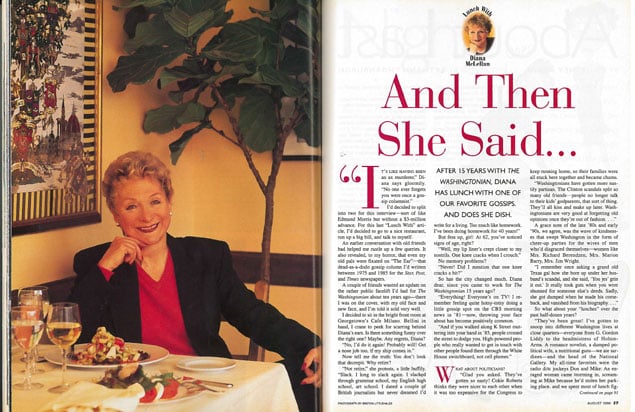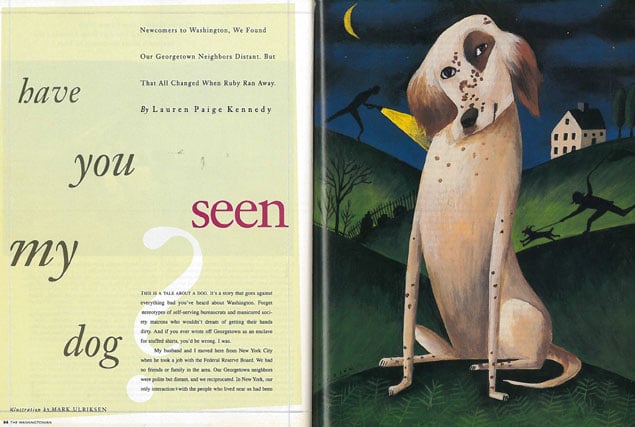The Vice President of the United States, high-school civics textbooks tell us, presides over the Senate and serves at the pleasure of the President. That being so, a case can be made that the country now has the ideal Vice President, because when it comes to pleasing, George Bush takes a back seat to nobody.
From the moment Ronald Reagan selected him, reluctantly, to be his running mate on that August night in Detroit after Gerald Ford had finally turned down the honor, Bush has been a man who knows his place. Except for a few occasions when events have thrust him into the limelight, he has been as unobtrusive as a dash of cologne in a meat-rendering plant.
Bush has done everything the President has asked of him and essentially no more. And what he has done he has done without fanfare and, unlike some Vice Presidents, without griping. One gets the impression that he even likes being the equivalent of the pitcher of warm spit that John Nance Gamer talked about. “ It’s a great job and I like it,” Bush told a press conference in Myrtle Beach, South Carolina, recently. Other politicians, he went on, “are very critical of it, but they all want to be Vice President.”
Bush has blended in so well as the number-two man in the Reagan administration that it might be concluded that he’s on a clear track to be the Republican party’s nominee for President in 1984 if Reagan doesn’t seek reelection, or in 1988 if he does. After all, one of the most enduring political cliches in Washington is that a Vice President has a constituency of one-the man in the White House. And from all reports, President Reagan is completely satisfied with George Bush personally and with the way he’s handling his job.
Cabinet members talk glowingly of the way Bush, often ridiculed as being too aristocratic to be tough, took hold of administration reins last March 30 when Reagan was shot—and after Secretary of State Alexander Haig gave a good imitation of Captain Queeg with his televised “reassurance” to the country that he was “in control.” Since then, Reagan has lived up to his commitment to prepare Bush as best he can to assume the presidency if, as Reagan calls it, “the awful awful” should occur, as it nearly did last March. Bush’s chairing of the special situation group on Poland is perhaps the best measure of Reagan’s confidence in his Vice President.
• • •
So what’s Bush’s problem? The problem is that the cliche that a Vice President has a constituency of one oversimplifies the situation. Without doubt Ronald Reagan has it in his power to make or break Bush politically. But those who know Reagan best say that while he is not likely to discard Bush in 1984 if he runs himself, neither will he anoint him as his successor if he doesn’t run.
Consequently, George Bush probably is going to need considerably more than a constituency of one to be nominated for President, either in ’84 or in ’88. And within the Republican party today there are influential figures determined, no matter what the man does to please, that Bush will never be nominated. Their identity is no mystery. They are the leaders of the ultraconservative New Right, and they are convinced, for all of George Bush’s surface pliability, that he is a Nelson Rockefeller in sheep’s clothing.
Bush’s benign disposition, which the rest of the world accepts as being as natural to him as his striped ties, is seen by the New Right as a clever facade behind which he plots the takeover of the GOP and the country. Terry Dolan, mastermind of the notoriously negative National Conservative Political Action Committee, speaks darkly of the “Bushization of the Reagan administration.” And Richard Viguerie, the remarkably successful fund-raiser for New Right causes, declares categorically that “this is a Bush administration, not a Reagan administration.”
How they can say that about a Vice President whose most distinguishing feature has been a barely distinguishable presence would be puzzling if it were not for the conspiratorial thinking that dominates the New Right. The conspiracy view makes it quite simple: George Bush is playing possum, acting the amenable helpmate to Reagan while insidiously planting his agents in key positions in the administration—especially in the White House—and, recently, in the Republican National Committee (RNC).
“George Bush is part of the Nelson Rockefeller moderate-to-left-of-center Republicans,” Viguerie says. “He’s a conservative the way the chairman of General Motors is a conservative. Would he fight Legal Services? Would he fight for prayer in the schools? He’s a heck of a lot smarter than Nelson Rockefeller, who spent a lifetime tweaking the conservatives. Bush is far, far too smart for that. He’ll give us the window dressing and the rhetoric. When we ask him about issues important to us, he says, ‘It’s not important what my views are.’ He sends all the right signals.”
• • •
The New Right’s Exhibit A in the “Bushization” of the Reagan administration is, obviously, James A. Baker ill, Bush’s good friend and his presidential campaign manager in 1980, who is now White House chief of staff. Others seen as major elements in the infiltration are David Gergen, a Bush speechwriter in 1980 who is now the White House director of communications; Richard Darman, deputy to Baker (and really an Elliot Richardson man, as a former aide to Richardson at the Justice and Commerce departments, which is just as bad, or worse, to ultraconservatives); and Rich Bond, Bush’s chief of staff and now deputy chainnan of the RNC and de facto operating head, reporting to Baker.
“Bush has been more effective in getting his people placed in the administration than Ronald Reagan has,” says Paul Weyrich, director of the Committee for the Survival of a Free Congress and a leading New Right theoretician. Weyrich credits Baker himself as well as Bush for Baker’s key position in a White House ruling team that includes counselor Edwin Meese, deputy chief of staff Michael Deaver, and national-security adviser William Clark. “There was a tremendous power vacuum and Baker’s moved into it,” Weyrich says, “but Baker has used it to get Bush people into key places. … Bush has an ideal situation. He goes around the country collecting due bills by expressing support of Reagan, meanwhile putting his people in place.”
Bush scoffs at the notion. “I mean, you take a guy like Jimmy Baker,” he says. “He’s loyal to the President, he’s working hard, he’s doing a good job. If he got into a crunch between something I [wanted and] something the President [wanted], he’d no more come down on my side because he was my friend than fly to the moon.” As for Bond’s switch to the RNC, Bush says Bond “was offered a job without my knowledge …. It isn’t any takeover …. I don’t believe I’ve done anything to encourage that kind of speculation.”
Nevertheless, the New Right seems convinced that there is a conspiracy whose objective is a Bush presidency in 1984 or 1988. And what ultraconservatives such as Weyrich fear is that their hero, Reagan, has been snookered by Bush. If Ronald Reagan retired in 1984, Weyrich says, “I think you would find him pointing the way for George Bush.” Viguerie muses about a possible “LBJ scenario”—Reagan going up to Camp David in mid-February of 1984, after many primary filing dates have passed, and saying he won’t seek reelection. If that happens, he says, “it will be very tough to develop the horsepower” to detour Bush. And Terry Dolan says, “If Reagan wanted Bush to be President, he might do that.”
• • •
To Republicans more friendly toward Bush, or at least neutral, such conjecture about what Bush is up to borders on paranoia. They concede that Bush has been a Goody Two-Shoes in the vice presidency. But they note that such conduct is completely in character—and simply prudent politics for any Vice President.
Bush himself sidesteps all talk of ’84. Asked at the Myrtle Beach press conference whether he might be back in South Carolina in two years bidding for the presidency, he said: “I don’t think so. I’ll be campaigning for the presidential bid of Ronald Reagan.”
Of the ultraconservatives’ attitude toward Bush, one Reagan Cabinet member says: “They don’t trust him because he doesn’t go down the line with the right wing. He’s thought a lot about being Vice President, and he’s tried to be an accommodating figure. Nelson Rockefeller couldn’t accommodate the ego problem; Bush does.” This same Cabinet member recalls Bush poking fun at himself at one Cabinet meeting by saying at its conclusion: “There are no funerals today. Anybody want to play tennis with a Vice President?”
That is the George Bush who is most often seen in the eyes of more moderate Republicans—the caricature of the bright-eyed, eager man-child in the white sweater with the blue Y (for Yale) on the chest, jumping the net after a couple of fast but gentlemanly sets; ever anxious to please, and, well, harmless. Some of these Republicans wish for his own and the party’s sake that he’d be a lot more aggressive.
“He’s just too laid back,” says a Cabinet member favorably disposed toward Bush, “and he doesn’t exercise as much influence as he could.” For example, in the important debate last fall between Secretary of Defense Caspar Weinberger and Budget Director David Stockman over defense spending, the Cabinet member says, “it was clear to me that George was leaning more toward Stockman . . . and for more cuts.” But from all reports Bush never said boo.
Bush acknowledges that some Cabinet members have expressed concern to him that he hasn’t spoken up more at Cabinet meetings. But Bush says he has a firm rule that he “should not put the President publicly in positions where he is going to have to override or rule against the Vice President. … It’s better to give the advice in private, and if the President determines something different on it, fine. Then he hasn’t had . . . divisions that can be blown out of proportion. . . . The President ought not to be looking over his shoulder to see if the Vice President is supporting him . . . or is plowing his own ground.”
Bush says he has ample opportunity to tell the President candidly—at their private lunch every Thursday—what he thinks about matters that come before the Cabinet. This approach, says one of Bush’s aides, enables the Vice President to retain good working relations with Cabinet members and to be able to function when required as a conciliator.
The public result of this posture, however, is a reinforcement of George Bush’s image as an unchallenging yes-man to Ronald Reagan—a man with whom he disagreed pointedly during their 1980 fight for the Republican nomination. Bush obviously is aware that this is one price he pays for being your basic loyal Vice President, but he is clearly more than willing to pay it: “To be effective, you’ve got to get along first of all with the President. And maybe just as important is the staff. I have this feeling that if you’re way out front, with a lot of visibility and high profile, you inadvertently heighten tensions and create a climate in which misunderstanding can prevail, instead of mutual trust and understanding. . .. I have no regrets. I don’t get hurt feelings when somebody writes the whatever happened-to-George-Bush story.”
As a team player in 1981, Bush spoke at more than 35 paid Republican events and raised about $3 million for the national party. In addition he signed some twenty letters for state party candidates and organizations that, according to his staff, brought in $5 million more. So while he has not been directly feathering his own nest, he has been earning political chits that can be called in later.
• • •
One of Bush’s biggest supporters, a Cabinet member, suggests that Bush make better public-relations use of the work he has done as the President’s appointed overseer of regulatory reform—a central pledge of Reagan’s 1980 campaign. A onetime Bush political aide agrees. “George calls it regulatory reform,” the former aide says. “He should call it deregulation. It’s not an exciting topic, but Reagan used it effectively for ten years. He needs to find one little example and talk about it. Hell, Kennedy makes more hay out of deregulation than he does. If Kennedy can do it, George can. Everybody ridicules Reagan’s ‘horror stories’ on deregulation … but they’re great politics. It makes the ideologues happy whenever anybody attacks regulations, and it makes business and consumers happy. George always takes the cautious, prudent, boring approach. What’s inherently wrong about bringing people out of their seats once in a while?”
Bush says that he and his staff have been “talking about whether to escalate public attention on what we’re doing” in regulatory reform, but that he is wary of blowing his own horn when Cabinet members are also involved.
Bush critics within the White House also would like to see more hype from the Vice President. “George has not been on the attack, and it’s a problem,” says one of the more combative. “He’s too nice a guy. When you have a nice guy as President and a nice guy as Vice President, who’s going to shit on people?” If Bush wants to get along with the ultraconservatives, this critic says, he ought to start swinging harder in the President’s behalf. There were suggestions during the Senate fight over the AWACS plane sale to Saudi Arabia last summer, for example, that Bush cancel a promised fund-raiser for Republican Senator David Durenberger of Minnesota unless Durenberger promised to vote with the President. Bush refused. “He doesn’t want to make any enemies,” this critic says. “And you never see George Bush’s name in the papers, because he never says anything worth quoting.”
Early plans for the congressional campaign this year include Bush on the stump, but heavy use will be made of Reagan on television, in part because the campaign planners have little confidence that Bush can take the fight effectively enough to the opposition. But Bush insists his soft sell is best for him. “If I went out hard-selling to any group,” he says, “I just don’t think that would be effective.” As for suggestions that he become a vice-presidential hatchet man in the tradition of Spiro Agnew and Richard Nixon, he says: “I wouldn’t be any good at it. You’ve got to be what you are, and operate the way you do. Otherwise you’ll be less effective.”
Complaints about Bush’s style hardly explain the disfavor he experiences among the party’s most conservative elements. He is, after all, a card-carrying conservative himself. Except for the characterization of Reaganomics in the 1980 primary campaign as “voodoo economics,” he passes most conservative litmus tests with flying colors, although he does dance around some of the social issues—not unlike Reagan.
Bush actually is in step with the New Right on most controversial social issues. He is for prayer in the schools, against school busing, and in partial agreement with ultraconservatives on abortion- he would support a constitutional amendment to allow states to decide. The ultraconservatives want more—a constitutional amendment flatly banning abortion. On only one of the main issues, the Equal Rights Amendment, which he supports, is Bush at odds with Reagan and the New Right. But that one almost certainly is academic now.
As for “voodoo economics,” Bush shunts paternity of the phrase onto his press secretary, Pete Teeley. For a long time he insisted that he had never even uttered the phrase. Recently, in Houston, Bush said the TV networks had hunted unsuccessfully for videotapes showing him using it, and he added: “I challenge anybody to find it.” Whereupon Ken Bode of NBC News did just that—in the network’s tape library in New York. Bush was found referring on tape to “a voodoo economic policy” in a speech he made at Carnegie-Mellon University in Pittsburgh on April 10, 1980. He compared candidate Reagan’s approach to something Governor Jerry Brown of California might cook up.
What he was criticizing, Bush now says, was “cutting taxes and just having that cure everything.” When President Reagan announced his economic package, Bush notes, “we weren’t apart at all in terms of economic objectives.”
• • •
The George Bush who campaigns these days is boyishly enthusiastic, but always with propriety. He tells one recent audience that “I hope to heck” Reagan runs again; he tells another that members of the Reagan Cabinet are “working like the dickens.” Hardly a threatening figure, George Bush. Why, then, is he regarded as such poison by the ultraconservatives? Says one White House insider with solid ties to Viguerie, Weyrich, et al: “They see signs of Bush activity everywhere; I even hear it at the White House here. Nobody dislikes George or thinks he’s done any disservice. But they’re afraid he’s going to become President.”
Part of Bush’s problem with the New Right, says a Republican familiar with his political history, grew out of Bush’s exposure to ultraconservatives in Texas when he was party chairman of Harris County, which embraces Houston. “When he thinks of the right,” this former aide says, “he thinks of when he had trouble with the Birchers down there. He was recruited to run [for Congress] against the Birchers, and [he] beat them, and then, being a good preppie, he let them all in. The Birchers, as they would, stabbed him in the back and he concluded that all [ultra] conservatives are crazy. He carries stereotypes and doesn’t understand people. He himself is a conservative, but he separates politics from government, the way Jimmy Carter did.”
As a result, this old hand says, Bush for all his accommodating ways doesn’t really like the New Right, and its leaders realize it. They in turn have seized upon him as a scapegoat for all their disappointments in Reagan. “They see George as a devil figure,” says the former aide. “Because of their emotional commitment to Reagan, they tend to forgive him everything, and blame George. He helps Reagan in that regard, but it doesn’t help Bush particularly.”
The New Right goes after Bush, this Republican says, because a political role reversal of sorts has occurred between the President and Vice President in this administration. “After a winning election,” he says, “the Vice President usually becomes the soul of his party. The President moves to the center and the Vice President becomes the hero of the true believers. George’s problem is that Reagan is still the hero of the true believers, and if George supports him as aggressively as they would like, he risks isolating himself from all the others in the party.”
Still others suggest that the problem is cultural. “Certain people on the political right are not going to accept George Bush no matter what he does,” says a man with connections in both the Bush and New Right camps. “It’s because they are knee-jerk ideologues and because he went to Yale.” Moreover, despite Bush’s reputation for wanting to please at almost any cost, insiders talk often of his stiff back, of a stubborn streak they can seldom overcome. In his determination to serve his special constituency of one, he will not do or say anything to appease the New Right beyond the ordinary gestures of cordiality and civility that are so clearly a part of his breeding and style.
From all this, it is clear that short of a direct laying on of hands by Ronald Reagan either in 1984 or 1988—and probably even with such an anointment— George Bush is going to have to fight for his party’s presidential nomination the next time it’s available. Those who know Reagan best doubt that he will inject himself forcefully into the matter of selecting a successor. One conservative who would throw himself across Bush’s path says indelicately: “You can bet your sweet ass George isn’t going to get a free ride.”
The names of prospective foes on the right are equally obvious: Jesse Helms, Jack Kemp, Orrin Hatch, Phil Crane, and even Paul Laxalt, Reagan’s buddy in the Senate. Helms is seen by nearly all but the truest believers as essentially a protest candidate, and some think his candidacy would help Bush. “Helms could be Bush’s secret weapon,” says one conservative politician. “He would strip off the ground troops another [ultra] conservative candidate would need and make it difficult for him to get off the ground. What Bush needs in order to be nominated is a lack of unity on the right.”
If there is anything the ultraconservatives are unified on these days, it is the specter of George Bush threatening to subvert or steal away the era of real conservatism they thought had been ushered in with the election of Ronald Reagan. But so emotional and intense is that feeling, fanning the ambitions of several darlings of the New Right, that it is doubtful that unity against Bush could be achieved in a presidential-election year.
So, for all the complaining about George Bush, among foes and friends alike, he is likely to continue to conduct himself as he has—a Throttlebottom in a Brooks Brothers suit, doing what he is asked and learning all he can about the job that the actuarial tables suggest could sooner or later be his. As a Cabinet member says: “He’s number two to a 71-year-old President. He’s got to think about it. “
This article appears in the April 1982 issue of The Washingtonian.

















